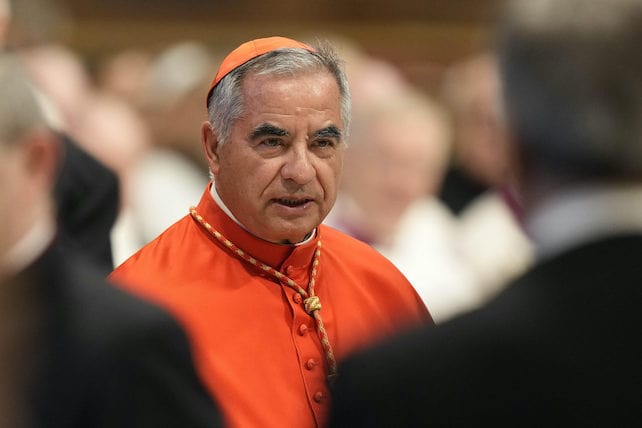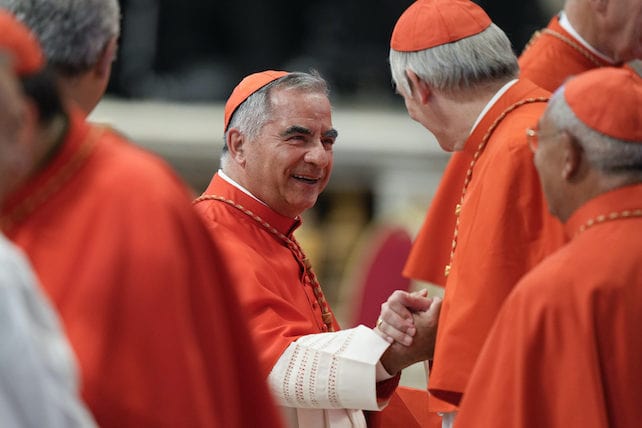During the hearings, defendants pointed to the procedural irregularities of the Vatican trial, which uses a canon law system and attributes supreme authority to the pontiff. Pope Francis intervened during the 2019 investigations by issuing two papal decrees, called motu proprio, which gave the Vatican prosecutors and police extraordinary powers.
At the heart of the trial is the 2019 purchase of a London property by the Vatican’s Secretariat of State that resulted in the loss of over 200 million euros, according to Vatican prosecutors. The Secretariat hired Italian entrepreneurs Raffaele Mincione and Giangluigi Torzi to help manage the property, in 2013 and 2019 respectively, but they were accused of defrauding the Catholic institution through unexpected fees and charges.
Mincione was sentenced to five years and six months in prison for embezzlement, corruption and money laundering, while Torzi received seven years and six months for aggravated fraud, extortion and money laundering. Both were ordered to pay fines and were banned from holding public offices.
Cardinal Becciu was the substitute for general affairs, the third-highest ranking official at the Vatican, during the purchase of the property and was accused of embezzlement, abuse of office and attempt to influence the prosecution’s key witness, Mons. Alberto Perlasca, a former officer at the Vatican’s Secretariat.
He was also accused of funneling Catholic funds to his brother’s company in his native region of Sardinia and of paying large sums to Cecilia Marogna for her intelligence services for the ransom of a nun kidnapped in Mali. Prosecutors said the funds were used to purchase designer bags and luxury vacations.
Cecilia Marogna was also found guilty of embezzlement and sentenced to three years and nine months in prison, and her company was ordered to pay a 40,000 euro fine.
Becciu’s secretary, Mons. Mauro Carlino, and the man in charge of handling the Vatican’s Secretariat purse strings, Fabrizio Tirabassi, were also charged for allegedly colluding with Torzi and Mincione in the London deal. Enrico Crasso, who managed a large portion of the Vatican’s investments for decades, also played a role in the deal by introducing some of the main players. The lawyer who participated in the negotiations for the London property deal, Nicola Squillace, was also charged with fraud and money laundering, among other things.
Crasso and Tirabassi were sentenced to seven years in prison, while Squillace faces one year and 10 months for embezzlement, corruption, money laundering and aggravated fraud. Carlino was absolved of all charges.
The former leadership of the Vatican’s financial watchdog agency, René Brülhart and Tommaso di Ruzza, were also accused in the proceedings for not flagging the suspicious transactions. The judges found Di Ruzza and Brülhart guilty and sentenced them to pay a fine of 1,750 euros.
RELATED: Pope, once a victim of AI-generated imagery, calls for treaty to regulate artificial intelligence
Hanging over the conclusion of the trial is its silence concerning key players who were not charged by the Vatican tribunal. Cardinal Pietro Parolin, the Vatican’s Secretary of State, and Bishop Edgar Pena Parra, who took Becciu’s place as substitute, were central figures in the dealings concerning the London property.
The Vatican tribunal will release detailed explanations of their decisions within the year, and the accused will have a chance to appeal the decision. Until then, all sentences are suspended. The Vatican has yet to specify if the prison sentences would be carried out in Italy or inside the Vatican walls if the defendants were to be found guilty on appeal.
RELATED: Inconvenient truths at Christmastime
This article originally appeared at ReligionNews.com.


